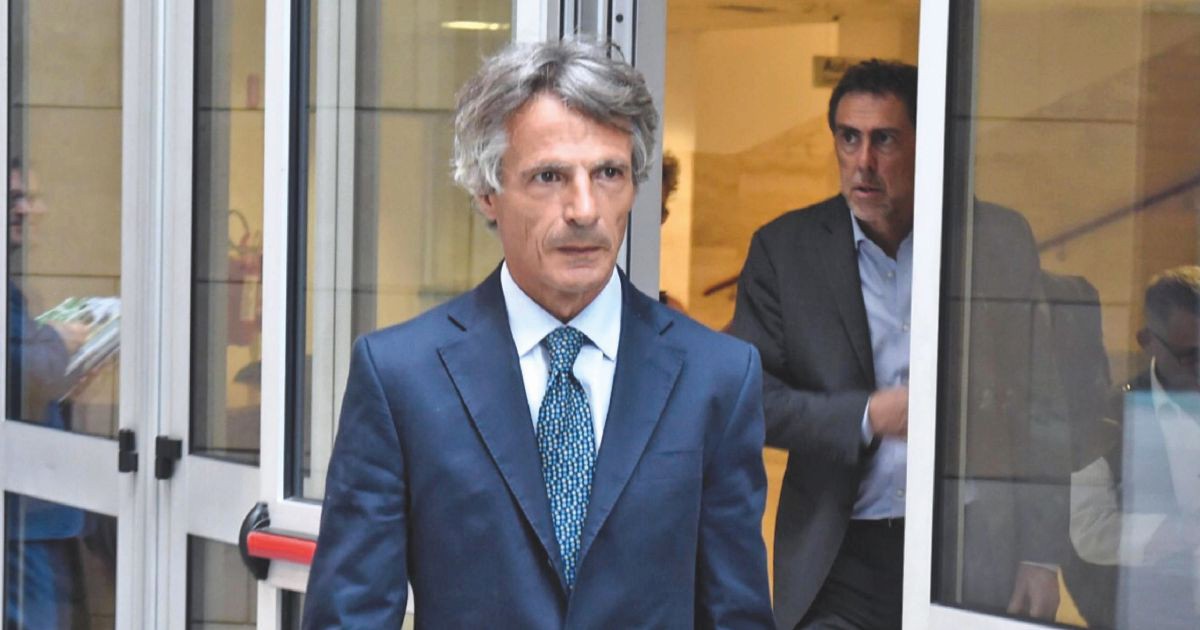“In the history of Italy there are many black holes and, when there are obvious scandals, it seems that we are a land of ghosts ”. The historical unionist of the bankers Lando Maria Sileonifor 12 years secretary general of the Fabithus joined the chorus of comments to the appeal sentence of the process Mps that Friday 6 May saw all the defendants acquitted, both individuals and foreign banks, of the accused stock manipulation in a series of financial transactions realized by Monte dei Paschi di Siena on the Alexandria and Santorini derivatives to cover the losses caused by the purchase of Antonveneta.
“A culprit is never found, the lawyers are always very good and better than the other party. In short, there is always either an acquittal in first instance or on appeal or a solution that somehow puts tombstones on circumstances and events that have been catastrophic ”, he added. Sileoni then remarked that “that of MPS which is still a problem today despite the fact that they work well beyond it 22,000 workers and families, is a problem that is heavily affecting the very development of the banking sector in Italy; the negotiation between Unicredit and the Ministry of Economy for the sale of Monte dei Paschi. There are currently no market solutions. This situation must certainly be resolved, because the European Central Bank it has given time, but it will not be infinite. It is clear that we were expecting a ruling that could tell us why this hole was created. But there always seems to be ghosts behind it very serious decisions which have produced enormous problems for the country and huge holes paid by citizens with capital increases relevant to the state finances “.
Instead, the mayor of Siena points the finger at the power of the center-left Lugi De Mossi, who in a note appealed to the “court of history” which “will severely judge an entire system of Sienese power that led to the disaster of the third bank in the country”. According to De Mossi, “beyond the individual legal or criminal responsibilities of individual bank administrators, there is a strong and unavoidable responsibility of an entire system. That of the Sienese center-left which has for decades, also in connection with national plan, built the environmental conditions so that Monte dei Paschi would end up imploding “. Conditions implemented “intertwining in a perverse waywith excessive and inappropriate familiarity and proximity, finance, institutions, politics – he adds -, choosing the obviously wrong peoplemanaging every available place in a monolithic logic, and ending up by narcotizing a city and suffocating its energies “.
“After all that has happened, no one is responsible. Then everything is clear: Antonveneta she bought herself ”, is the comment of Pierlugi Piccini who was mayor of Siena between 1990 and 2001. “It is very strange, after all that has happened in the last 7 years, that we arrive at a total annulment of the first instance sentence – he told theAdnkronos -. What strikes me is that the costs of the trial will be borne by the plaintiffs and I believe it will be a significant outlay. The conclusion that seems to emerge after this verdict is that nothing has happened. There’s a total reset of everything there has been. I believe there will now be a appeal to the Supreme Court. In any case, I am waiting to read the reasons “.
Wonder, amazement, anger and disappointment, then, from the associations of employees, citizens and savers. Romolo Semplicirepresentative of the Pietraserena Association of Siena, atAdnkronos he spoke of a “shocking” sentence, an “offensive blow in the towel against bank employees, savers who have lost capital and the territory of Siena which has seen a wealth built up over the centuries impoverished”. Not only. “One is also disconcerted by this justice, which has taken place more than ten years to go to sentence and with such a great contradiction between first and second degree that it is mortifying and disappointing. It is almost a provocation for the common citizen ”, continues Semplici. For Semplici “there were all the elements to understand that there were responsibilities, not only of Mussari, Vigni and Baldassarri, but much broader and involving supervisory bodiesthe Bank of Italythe Montepaschi Foundation“. That of Montepaschi, continues the representative of the Pietraserena Association, “is an emblem of Italian evil justice, which needs substantial reforms. Who is to blame for this disaster? Who has specific responsibilities in the destruction of an esteemed heritage in 50 billion euros?”.
“It is a grotesque story. Someone was wrong. Either the judge during the first trial, or yesterday the appeal judge. It is not possible to assume that there is no person responsible for this wicked affair “, added the president of the Salvabanche Victims Association, Letizia Giorgianni for which “all that remains is a single reflection: either the people who have to apply these rules to protect savers are inadequate or the rules themselves on this type of economic crime“. And this, notes the president of the Salvabanche Victims Association, “does not only concern MPS but also other banking events. It seems they are natural disasters, a random event that can happen without anyone’s responsibility. And the usual ones always pay: savers, investors – which is not a bad word as investing in a healthy bank is sacrosanct – and the citizens ”.
From a judicial point of view, the professor Mario Ascheri, former professor of the history of medieval and modern law at the University of Roma Tre, a scholar of Sienese historical-political events, “it is probable that we will go to the Supreme Court and naturally in the meantime the prescription will fall”. According to the scholar, “from the brief statement by Mussari on the natural judge, it seems to me that we can deduce that the Court of Appeal of Milan has formal problemalso of competence “.
–


